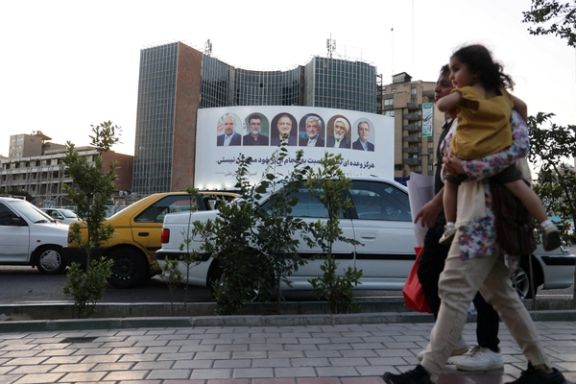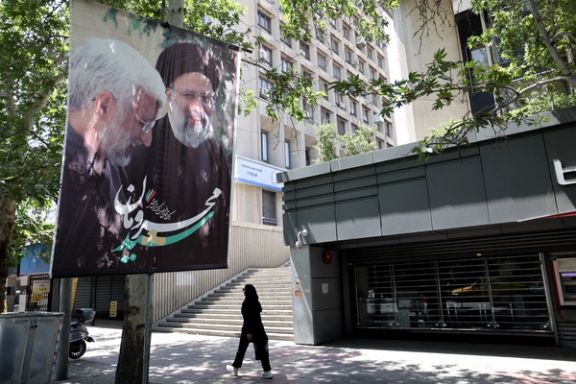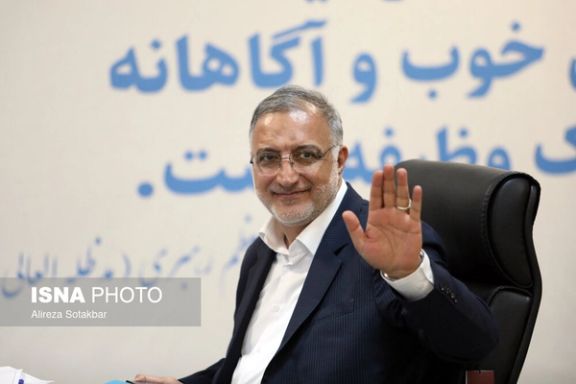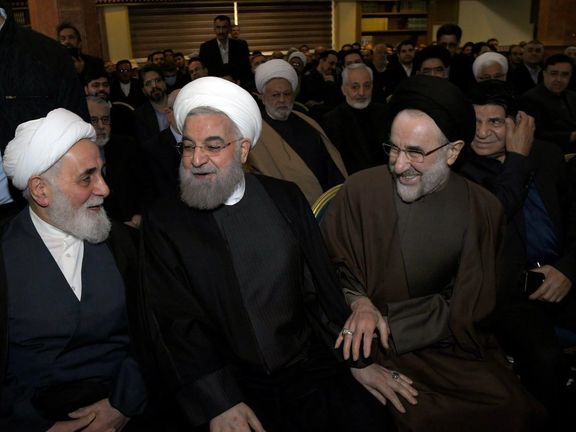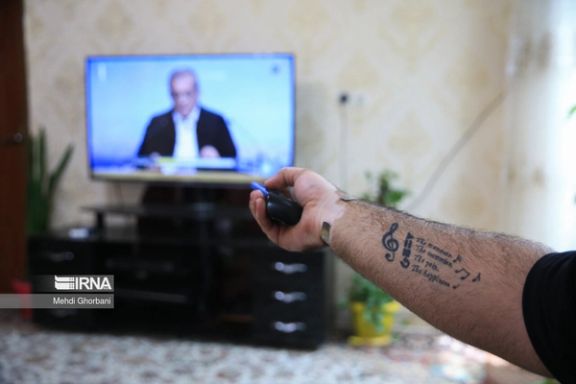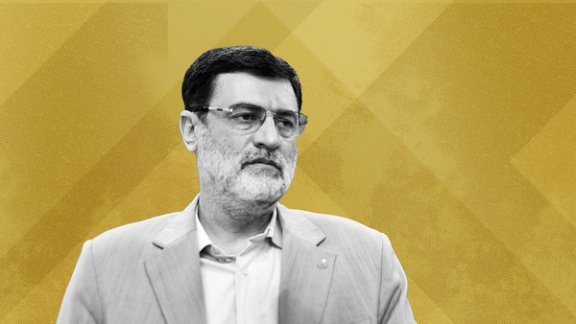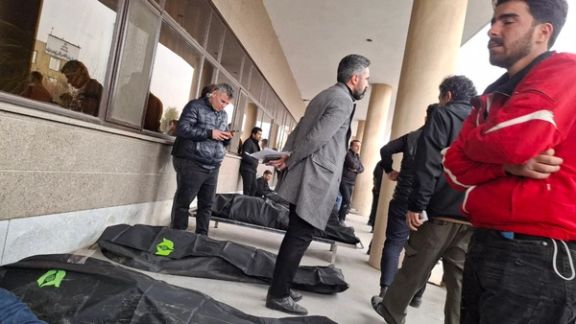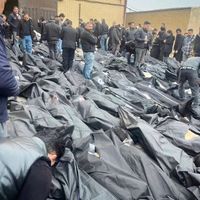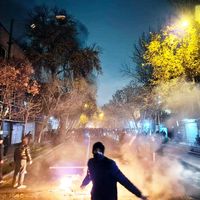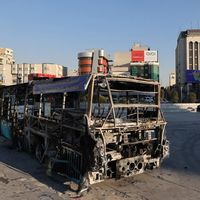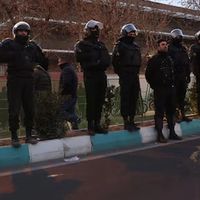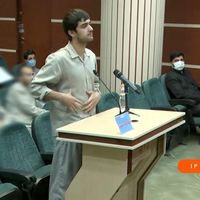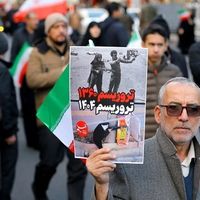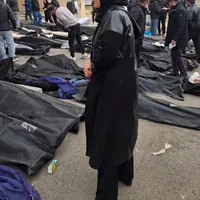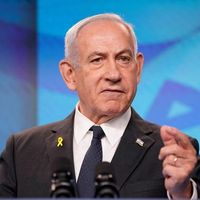As a result, a significant majority of the populace will more likely disregard the electoral process entirely.
Despite the five poorly managed debates, rival candidates brought to light ten critical issues that had never been covered by the state's TV and radio stations. These issues pertain directly to people's livelihoods, rights, freedoms, and economic development. Successive governments in Iran have either officially denied, ignored, or relegated these controversial and scandalous matters to the back burner.
The Controversial Crescent Contract
This controversial contract for the daily sale of 500 million cubic feet of gas from the Salman oil field was signed in 2002 between Crescent Petroleum Company (CPC) and the National Iranian Oil Company (NIOC) during the tenure of Oil Minister Bijan Namdar Zanganeh in President Mohammad Khatami’s administration.
In a landmark ruling, the International Court of Arbitration in Paris ordered NIOC to pay $607.5 million to the UAE's Dana Gas Company, an affiliate of Crescent Petroleum, due to Iran’s failure to deliver according to the contract.
During the debate, hardliner candidate Saeed Jalili claimed that this case had been archived in the office of fellow candidate, cleric Mohammad Pourmohammadi, when he was head of the General Inspection Organization. Pourmohammadi, in turn, blamed Jalili for halting the proceedings.
In fact, hardliners have been blamed for numerous corruption scandals in recent years and they aimed at highlighting mistakes and scandals that took place during so-called reformist administrations. This belied Jalili's quest to bring out the Crescent issue.
COVID Vaccine Ban During Pandemic
In the debates, other hardliner candidates, Tehran Mayor Alireza Zakani and Ghazizadeh Hashemi accused the administration of former President Hassan Rouhani, who was in power during the pandemic, of delaying the purchase of the coronavirus vaccine.
They failed, however, to mention that Supreme Leader Ali Khamenei had banned the entry of Western vaccines into the country in January 2021, when no other vaccine existed yet. Due to this delay, it is approximated that between 70,000 and 100,000 people died. Total casualties are estimated to be between 160,000 and 300,000, based on official and unofficial counts, respectively.
Both Zakani and Hashemi have since dropped out of the presidential race.
Internet Shutdowns Amid Popular Protests
While all the candidates in the debates expressed disapproval of the state-sanctioned filtering and blocking of the Internet, some used the opportunity to blame and attack each other's roles in these actions.
The discussion at one point focused on the internet shutdown during the authorities' crackdown on the November 2019 protests, known as 'Bloody November.' These widespread protests initially erupted across Iran in response to fuel price hikes but quickly escalated into anti-regime demonstrations.
Candidates opposing then-President Hassan Rouhani attributed the internet shutdown to his administration. The only pro-reform candidate, Masoud Pezeshkian, countered by conveying that the shutdown was approved by the Supreme National Security Council, implicating senior figures and candidates like Mohammad Bagher Ghalibaf and Saeed Jalili in the decision-making process.
The 2019 Mahshahr Massacre
The Mahshahr protests in November 2019 began peacefully, with residents of this oil city in Khuzestan Province setting up roadblocks to protest. In response, the National Security Council, led by Ali Shamkhani, deployed an IRGC commando brigade armed with tanks, heavy weapons, and a military helicopter.
IRGC forces targeted protesters with heavy machine guns and helicopter fire, indiscriminately shooting at civilians. Many fled to nearby reed fields for shelter, but the IRGC continued their assault, resulting in numerous deaths, including many youths. A journalist described the scene as if the marshes were being cut through with a sickle.
During the debates, Ghazizadeh Hashemi acknowledged and justified the shootings in the reed fields, but failed to mention that over a hundred people were killed for simply protesting by creating traffic jams on a suburban road.
The 1988 Massacre
In an interview amid his campaign, cleric and prosecutor Mostafa Pourmohammadi defended and downplayed his role in the mass execution of thousands of political prisoners in 1988. As a member of the "Death Committee" in Tehran’s Evin prison, Pourmohammadi implicitly confessed: "In a period, I had to be in the most difficult and bitter position against the hypocrites and be strong against the infidels.” The mention of "infidels" is a reference to members of the opposition group Mojahedin (MEK), who were targeted during the purges.
Up to 5,000 political prisoners serving their prison sentences were murdered in 1988. Their bodies were secretly buried in isolated or mass graves.
Pourmohammadi described the massacre as "the project of the Islamic Republic, the difficult moments of the military, a major conflict." Contrary to the popular belief that there was only one death panel, Pourmohammadi revealed that 30 death panels managed the massacres around the country.
The Debsh Tea Embezzlement
The Debsh Tea Embezzlement case is arguably the biggest corruption case in the Islamic Republic’s young history.
Embroiling key Islamic Republic figures, the scandal involved the Debsh Agriculture and Industrial Group misappropriating $3.37 billion in government funds meant for tea and machinery imports by selling $1.4 billion of the currency on the black market, fraudulently labeling low-grade tea, and re-importing cheaper Iranian tea for profit.
The embezzlement took place during both the Hassan Rouhani and Ebrahim Raisi administrations.
Despite initial reports and promises to address the issue, it became one of several cases that Supreme Leader Ali Khamenei had previously ordered "not to be followed." Consequently, the case has yet to go to court.
The Murder a Former Mayor’s Wife
During the debate, Ghazizadeh responded to Pezeshkian's protest against the violation of women's rights by bringing up Mohammad Ali Najafi, a former Tehran mayor and Minister of Science in the Rouhani administration.
Najafi was sentenced to death for killing his wife, but was released later after he had his life “spared” by her family.
Ghazizadeh criticized the candidates from the authoritarian faction for their support of Najafi, highlighting their actions: "When the Minister of Science in the Rouhani administration killed his wife in such a horrible way, why did they go and support him? They got consent from her family and overturned the court verdict. Wasn't she a woman?"
JCPOA, FATF, Sanctions
The JCPOA (Joint Comprehensive Plan of Action) and the regime's accession to financial and banking treaties have been sources of serious disagreement between political factions in Iran.
The authoritarian faction accuses the reformists of capitulating to Western demands, while the so-called reformists accuse their opponents of exploiting the sanctions for their own benefit.
During the election campaign, former President Rouhani claimed that the opposing faction caused $300 billion in damage to the country by passing the Strategic Act to Cancel the Sanctions.
The Zahedan Massacre’s Bloody Friday
On Friday, September 30, 2022, amid nationwide protests, security forces opened fire on demonstrators during the Friday prayer protests in Zahedan, resulting in the deaths of over 100 people. This occurred in the aftermath of Mahsa Jina Amini's killing, while in the custody of the "morality police."
The government has not officially accepted responsibility for the massacre, instead attempting to placate the victims' families with blood money. Pezeshkian criticized the government's handling of the situation and its treatment of the people of Sistan and Baluchestan Province.
Attack on Embassies
Since 1979, the Islamist regime’s authorities have either directly participated in or supported attacks on foreign embassies. Notable incidents include the attacks on the American, British, Danish, and Saudi embassies, which have caused hundreds of billions in damages to the country by disrupting normal relations and trade. During the debates, candidates blamed each other, ultimately indicating that the regime was behind and supportive of these attacks.
While the candidates did address the aforementioned topics—mainly to blame each other and shift responsibility—many other critical issues were conspicuously absent from the debates.
These unaddressed issues include the murder of Mahsa Jina Amini, the killing and blinding of hundreds of protesters in 2022, the regime’s role in the October 7 Hamas attacks, the chemical assaults on over 230 schools across 25 provinces in 2022-2023, and the expenditure of tens of billions of dollars on the regime's regional expansion plans, terrorism, banditry, and global hostage-taking – just to name a few.
